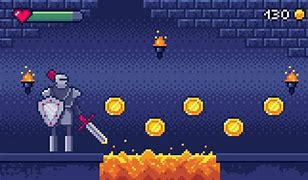Managing Your Game Backlog: Challenges and Solutions
Content:
The game backlog is a common struggle for gamers and collectors alike. Whether its a shelf filled with unplayed physical copies or a digital library packed with ignored titles, backlogs can become overwhelming. But what exactly causes them, and how can you manage them effectively? Lets explore some key questions and solutions.

1. What Causes a Game Backlog?
A game backlog often builds due to several factors:
Sales and Promotions: Platforms like Steam or Epic Games Store frequently offer discounts, making it tempting to buy games impulsively.
Limited Time Offers: Fear of missing out (FOMO) leads to purchasing games before they go on sale or disappear from the store.
Diverse Interests: Gamers may enjoy multiple genres, but limited time vents them from playing everything immediately.
Life Commitments: Work, school, or other hobbies can push gaming to the back burner.
2. How Big Is Your Backlog?
Before tackling the issue, assess the scale of your game backlog. Ask yourself:
How many unplayed games do you have?
Are they physical or digital?
t?
Tracking your backlog can help prioritize games you truly want to play.
3. Why Is It Hard to Finish a Game?
Many gamers find themselves stuck in a game backlog because:
nts: Busy schedules make it hard to commit to long or demanding games.
Lack of Motivation: Some games lose their appeal after initial excitement fades.
Technical Issues: Bugs or performance problems can discourage players.
Shifting Interests: New games or hobbies may distract from unfinished titles.
4. How Can You Manage Your Backlog?
Here are practical strategies to reduce and enjoy your game backlog:
# a. Prioritize Your Library
Cull the Unwanted: Be honest about games you’ll likely never play. Consider selling or gifting them.
Set Goals: Dedicate specific days or hours to gaming to make progress.
# b. Streamline Purchases
t for Sales: Avoid impulse buys during promotions. Use tools like Steam’s wishlist to track discounts.
Limit New Releases: Focus on games that genuinely interest you instead of trendy titles.
# c. Make Gaming Enjoyable
Short Sessions: Play smaller or fasterpaced games when time is limited.
Game Journals: Keep notes on unfinished titles to reignite interest later.
# d. Share the Load
Trade with Friends: Exchange games you’ve beaten for ones you haven’t.
Coop Play: Invite friends to tackle backlog games together.
*Sharing is fun—it turns gaming into a social experience!*
5. What About Digital vs. Physical Backlogs?
Digital: Easier to organize with wishlists but harder to let go of purchases.
Physical: Takes up space but feels more tangible. Consider rotating your collection to play recently bought games.
Conclusion
A game backlog doesn’t have to be a source of guilt or frustration. By understanding its causes and adopting smart management techniques, you can enjoy your favorite games without feeling overwhelmed. Whether you cull, share, or simply play smarter, the goal is to make gaming a rewarding hobby.
What’s your biggest challenge with your game backlog? Let us know in the comments!

